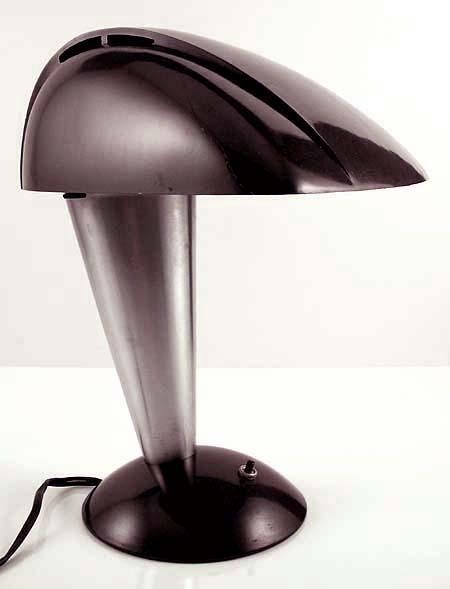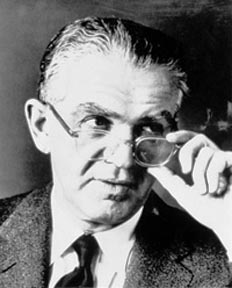“Streamlining ……”
Streamlining refers to rounded, smoothly finished and
generally tear-drop shaped forms.
Streamlined forms were used for the first time at the beginning of the
20th century and were associated with transport technologies (for
example ships, aircraft and motor cars).
Streamlining had a function at that time. It improved the performance of transport when
moving at high speeds, so in a way, streamlining reflected speed.
Later on, in the 1930s, streamlining was used to make
household goods look smoother and shinier – to attract customers. The economy in America was not so good at
that time and so manufacturers were struggling to keep operating because there
was an uncontrollable competition within the market. In view of this, manufacturers had to come up
with ideas to keep their business going – to increase sales and make a profit,
despite the economic problems.
Instead of manufacturing new products, many employers
in the manufacturing industries decided to give a new look to their existing
products. What they did was that they
employed designers to use Streamlining and give a different style to their existing
products – a style which was also different from that of other competitors’
products. To increase sales, they
re-styled their products annually. Refrigerators,
vacuum cleaners, radios, cameras and telephones were amongst the household
products which were re-styled, using streamlining.
Raymond Loewy, Norman Bel Geddes, Henry Dreyfuss and
Walter Dorwin Teague were some of the American designers who produced
streamlined designs and gave sleek modern looks to a variety of consumer goods,
such as those I mentioned above.

Jetset, (2000), Styled by Raymond Loewy... Designed and built by Dorset [ONLINE].
Available at: http://jetsetmodern.com/images2/loewy2.jpg
[Accessed 08 December 13]
Raymond Loewy`s Greyhound Bus (1940)

Jetset, (2000), Greyhound Bus, 1940 [ONLINE].
Available at: http://jetsetmodern.com/images2/loewybus.jpg
Available at: http://jetsetmodern.com/images2/loewybus.jpg
[Accessed 08 December 13]
The casing of the Locomotive #3768 was designed by Raymond Loewy in February 1936.
Wikipedia, (2013), #3768 in Raymond Loewy casing [ONLINE].
Available at: http://upload.wikimedia.org/wikipedia/commons/thumb/8/81/PRR_K4s_3768.jpg/798px-PRR_K4s_3768.jpg
[Accessed 08 December 13]
Available at: http://upload.wikimedia.org/wikipedia/commons/thumb/8/81/PRR_K4s_3768.jpg/798px-PRR_K4s_3768.jpg
[Accessed 08 December 13]
Raymond Loewy’s Streamlined pencil sharpener (1933)

IndD 501 Industrial Design Studio Intensive I, (2012), pencil sharpener [ONLINE]. Available at: http://industrial.design.iastate.edu/501/files/2012/08/raymond_loewy_pencil_sharpener.jpg
[Accessed 08 December 13]
Norman Bel Geddes

Jeanne Claire van Ryzin, (2013), Norman Bel Geddes with blueprints. [ONLINE]. Available at: http://media.cmgdigital.com/shared/lt/lt_cache/thumbnail/188/img/photos/2012/09/25/c2/85/AAS_092212_design3_1571445a_1.jpg [Accessed 08 December 13]

Jeanne Claire van Ryzin, (2013), Norman Bel Geddes, 'Motor Car No. 9 (without tail fin),' 1933 [ONLINE].
Available at: http://media.cmgdigital.com/shared/lt/lt_cache/thumbnail/188/img/photos/2012/09/25/f3/7e/AAS_092212_design1_1571443a_1.jpg [Accessed 08 December 13]
Oriole stove by Norman Bel Geddes
Available at: http://media.cmgdigital.com/shared/lt/lt_cache/thumbnail/188/img/photos/2012/09/25/f3/7e/AAS_092212_design1_1571443a_1.jpg [Accessed 08 December 13]
Oriole stove by Norman Bel Geddes

studyblue, (2013), Oriole stove [ONLINE].
Available at: http://classconnection.s3.amazonaws.com/552/flashcards/505552/png/picture_59.png
Available at: http://classconnection.s3.amazonaws.com/552/flashcards/505552/png/picture_59.png
[Accessed 08 December 13]
Henry Dreyfuss
NNDB, (2013), Henry Dreyfuss [ONLINE].
Available at: http://www.nndb.com/people/793/000097502/henrydreyfuss02.jpg
Available at: http://www.nndb.com/people/793/000097502/henrydreyfuss02.jpg
[Accessed 08 December 13]
Streamline Iron by Henry Dreyfuss
Daily Icon, (2008), Icon: Streamline Iron by Henry Dreyfuss [ONLINE]. Available at: http://www.dailyicon.net/magazine/wp-content/uploads/2008/09/iron01dailyicon.jpg
[Accessed 08 December 13]

Dieselpunks, (2011), NYCS J-3a streamlined by Henry Dreyfuss [ONLINE].
Available at: http://www.flickr.com/photos/paulmalon/5559994112/
[Accessed 08 December 13]
New York Central introduced 10 new streamliner steam engines and cars designed by Henry Dreyfuss for its Twentieth Century Limited New-York-Chicago run (1938)
Daily Icon, (2008), streamliner steam engine [ONLINE]. Available at: http://www.dailyicon.net/magazine/wp-content/uploads/2008/09/iron02dailyicon.jpg
[Accessed 08 December 13]

Dieselpunks, (2011), Des. 116,180 [ONLINE].
Available at: http://api.ning.com/files/zR2fM04pCTNimw8GX7ZJJj*ViC0gVm5NlFCO1l4VSLG6XuHLPityqm*b4F0Ofzjph7mDsPsiNY-czUk0KSnRYEyE0hJ22vpu/2010225432aeoliandave.jpg
Available at: http://api.ning.com/files/zR2fM04pCTNimw8GX7ZJJj*ViC0gVm5NlFCO1l4VSLG6XuHLPityqm*b4F0Ofzjph7mDsPsiNY-czUk0KSnRYEyE0hJ22vpu/2010225432aeoliandave.jpg
[Accessed 08 December 13]

Dieselpunks, (2011), First trip of the new streamlined Empire State Express [ONLINE].
I10eJjQ7rFCw4mrewHJ7eOPR67Z9gcs*DKiFDuLULItbre10V/20Empire_Express_Streamlined_1941.jpg
[Accessed 08 December 13]
Walter Dorwin Teague
Russell Flinchum, (2010), Why Teague Matters [ONLINE]. Available at: http://dcrit.sva.edu/view/readingroom/why-teague-matters/attachment/teague_portrait-1/
[Accessed 08 December 13]
Polaroid Streamlined Lamp designed by Walter Dorwin Teague (1937)

BFA, (2013), 1937 Polaroid Streamlined Lamp designed by the firm of Walter Dorwin Teague [ONLINE].
Available at: http://www.berkshirefinearts.com/uploadedImages/articles/892_748-Memorial-Drive443588.jpg
[Accessed 08 December 13]
Walter Teague streamliner rendering
Daniel Strohl , (2010), Walter Teague streamliner rendering [ONLINE].
Available at: http://blog.hemmings.com/wp-content/uploads//2010/05/WalterTeaguestreamliner_1000.jpg
Available at: http://blog.hemmings.com/wp-content/uploads//2010/05/WalterTeaguestreamliner_1000.jpg
[Accessed 08 December 13]
Earlier on, when I was writing about Art Deco, I
mentioned the thermoset plastic Bakelite.
In Streamlining, Bakelite was very suitable for the moulding and for the
making of the household products’ casings.
Ebay, (2013), Bakalite [ONLINE].
Available at: http://i1.ebayimg.com/05/s/06/43/2a/2f_2.JPG
[Accessed 08 December 13]
In 1934 Raymond Loewy streamlined a refrigerator
“Coldspot” for Sears and this was the first household appliance that was
noticed on the market for its looks, not for its functionality!
On 31st October 1949 Loewy was the first designer to appear on the
Time magazine because by that time Streamlining had become very popular and the
designers who practised it became very well-known. Loewy’s picture on the Time magazine cover
was accompanied by a caption that said, “He
streamlined the sales curve.”

Smartt Inc., (2013), Here is Raymond Loewy on the cover of time. It said that the mustache [ONLINE].
Available at: http://www.smarttinc.com/email/NL-0113/dyk-0113-05.jpg
Available at: http://www.smarttinc.com/email/NL-0113/dyk-0113-05.jpg
[Accessed 08 December 13]
So, Streamlining was very important to the American
manufacturing industries, especially between the 1930 and the 1950, because it
helped them to retrieve strength and become profitable again.
Jack5758. (2009). Streamlined Design . [Online Video]. 04 August.
[Accessed: 08 December 2013]
Other References:
IndD 501 Industrial Design Studio Intensive I. 2012. Raymond Loewy.
[ONLINE] Available at: http://industrial.design.iastate.edu/501/2012/08/27/raymond-loewy-2/.
[Accessed 08 December 13]
Jetset. 2000. Feature Article. [ONLINE] Available at: http://jetsetmodern.com/loewy.htm.
[Accessed 08 December 13]
Jeanne Claire van Ryzin. 2013. Ransom Center exhibit features streamline designs of Norman Bel Geddes. [ONLINE] Available at: http://www.statesman.com/news/lifestyles/ransom-center-exhibit-features-streamline-design-1/nSLJ3/. [Accessed 08 December 13]
Cook's Catalogue History, design, music and culture.. 2010. Film of Futurama Exhibit Shows Bel Geddes Model of 1960 America . [ONLINE] Available at: http://cookscatalogue.wordpress.com/2010/07/11/to-new-horizons-1940/.
[Accessed 08 December 13]
Daily Icon. 2008. Icon: Streamline Iron by Henry Dreyfuss. [ONLINE]
Available at: http://www.dailyicon.net/2008/09/icon-streamline-iron-by-henry-dreyfuss/.
[Accessed 08 December 13]
Dieselpunks. 2011. Sunday Streamline #29: Dreyfuss Rockets. [ONLINE]
Available at: http://www.dieselpunks.org/profiles/blogs/sunday-streamline-29-dreyfuss.
[Accessed 08 December 13]
Jeanne Claire van Ryzin. 2013. Ransom Center exhibit features streamline designs of Norman Bel Geddes. [ONLINE] Available at: http://www.statesman.com/news/lifestyles/ransom-center-exhibit-features-streamline-design-1/nSLJ3/. [Accessed 08 December 13]
Cook's Catalogue History, design, music and culture.. 2010. Film of Futurama Exhibit Shows Bel Geddes Model of 1960 America . [ONLINE] Available at: http://cookscatalogue.wordpress.com/2010/07/11/to-new-horizons-1940/.
[Accessed 08 December 13]
Daily Icon. 2008. Icon: Streamline Iron by Henry Dreyfuss. [ONLINE]
Available at: http://www.dailyicon.net/2008/09/icon-streamline-iron-by-henry-dreyfuss/.
[Accessed 08 December 13]
Dieselpunks. 2011. Sunday Streamline #29: Dreyfuss Rockets. [ONLINE]
Available at: http://www.dieselpunks.org/profiles/blogs/sunday-streamline-29-dreyfuss.
[Accessed 08 December 13]
Daniel Strohl . 2010. Streamlining, it’s all the rage. [ONLINE]
Available at: http://blog.hemmings.com/index.php/2010/05/10/streamlining-its-all-the-rage/.
Available at: http://blog.hemmings.com/index.php/2010/05/10/streamlining-its-all-the-rage/.
[Accessed 08 December 13]
Book: Fiell, C.F and P.F, 1999. Design of the 20th Century. 2nd ed. Germany: Taschen



No comments:
Post a Comment